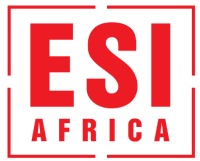Africa urged to craft unified response to CBAM
African nations must adopt coordinated strategies to navigate the European Union’s Carbon Border Adjustment Mechanism (CBAM), warns Saliem Fakir, Executive Director of the African Climate Foundation.
Speaking to ESI Africa news editor Theresa Smith at Enlit Africa 2025, Fakir said countries most exposed to CBAM – including South Africa, Nigeria and Egypt – need to prepare through coherent, collaborative approaches.
However, he questioned whether the EU would enforce the mechanism fully amid internal resistance and mounting industrial costs.
“CBAM is essentially a protectionist tool. But it’s facing pushback, including from within Europe. France, for example, has called for easing sustainability rules.”
He noted that Europe’s green transition is already burdened by rising input costs and limited access to critical minerals – many of which are sourced from Africa.
“Europe’s dependence on African minerals gives our continent leverage. But to use it, we need unified positioning,” he said.
Fakir also flagged the declining influence of global forums such as the World Trade Organisation, pointing instead to emerging bilateral pacts like the Clean Trade and Investment Partnership (CTIP) between the EU and South Africa.
These non-binding agreements, he said, are increasingly shaping the green trade landscape.
Africa needs to get more proactive when it comes to dealing with CBAM
On finance, Fakir emphasised the need for smarter infrastructure investment strategies that go beyond concessional lending. He urged African governments to explore innovative tools such as diaspora remittances and to prioritise returns that exceed borrowing costs.
“Debt re-profiling is essential. The focus should be on securing the cheapest capital… not necessarily concessional… and ensuring it yields high economic returns,” he said.
The African Climate Foundation, in collaboration with the LSE Firoz Lalji Institute, recently published a series of briefs on trade and climate, including an assessment of the UK’s CBAM, aimed at equipping policymakers with relevant insights.
Fakir said that Africa’s response must be proactive and strategic, particularly as global trade continues to evolve beyond traditional multilateral systems.
Cover photo: @Pixabay©Pexels






